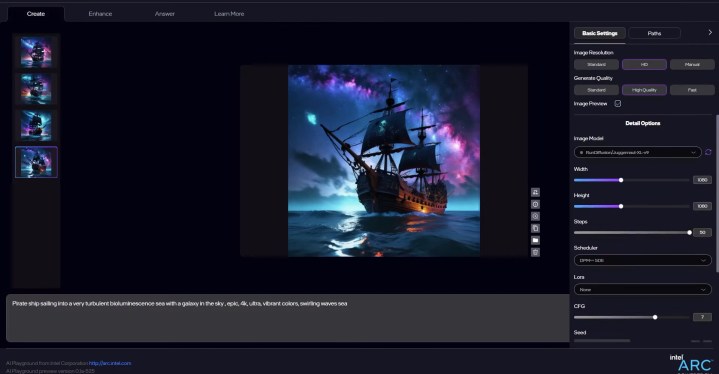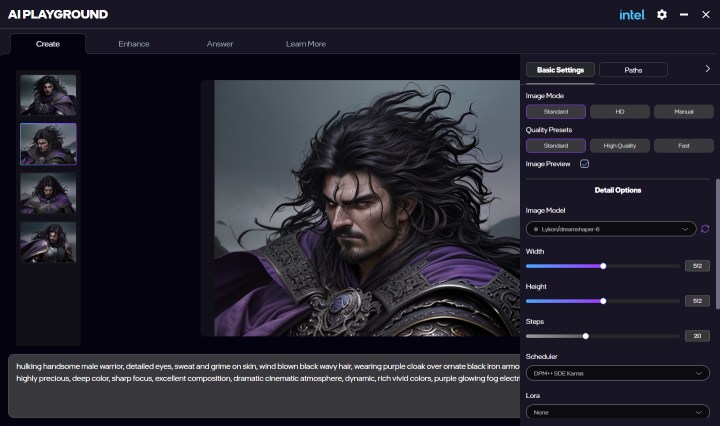
Intel shared a sneak preview of its upcoming AI Playground app at Computex earlier this week, which offers yet another way to try AI image generation. The Windows application provides you with a new way to use generative AI a means to create and edit images, as well as chat with an AI agent, without the need for complex command line prompts, complicated scripts, or even a data connection.
The interesting bit is that everything runs locally on your PC, leveraging the parallel processing power of either an Intel Core Ultra processor with a built-in Intel Arc GPU or through a separate 8GB VRAM Arc Graphics card.
AI Playground, which will be available later this summer as a free download, is built with simplicity and ease-of-use in mind. “We do not see AI Playground as a replacement for the many wonderful AI Projects and applications,” the company wrote in a recent blog post, “but we do see AI Playground as the easy path to get started with AI.”
It installs like a standard Windows application and switching between the image creation, image editing, and chat functions is a matter of clicking the tabs at the top of the screen. Image generation can be as simple as entering a short prompt and clicking a single button. A number of esoteric values and adjustments like “Steps,” “LoRAs,” and “Schedulers” have been rolled into more general and approachable “Resolution” and “Quality” settings, though they are still available to more advanced users through Manual mode.

While the Answer LLM’s performance wasn’t particularly impressive in the demo video above (that is not how you structure a haiku), the chatbot can be further fine-tuned to improve its performance through interacting with the user as well as through input text and documents. And that’s really where AI Playground sets itself apart from more advanced models like Claude, Gemini, or ChatGPT — since everything on AI Playground runs locally on the user’s PC, the chances of their data, prompts, and outputs being leaked are drastically decreased.
What’s more, the LLM is open source and can easily accommodate Pytorch models from other generative AI applications, allowing for a unique mix of flexibility and privacy that cloud-based applications don’t currently offer.




